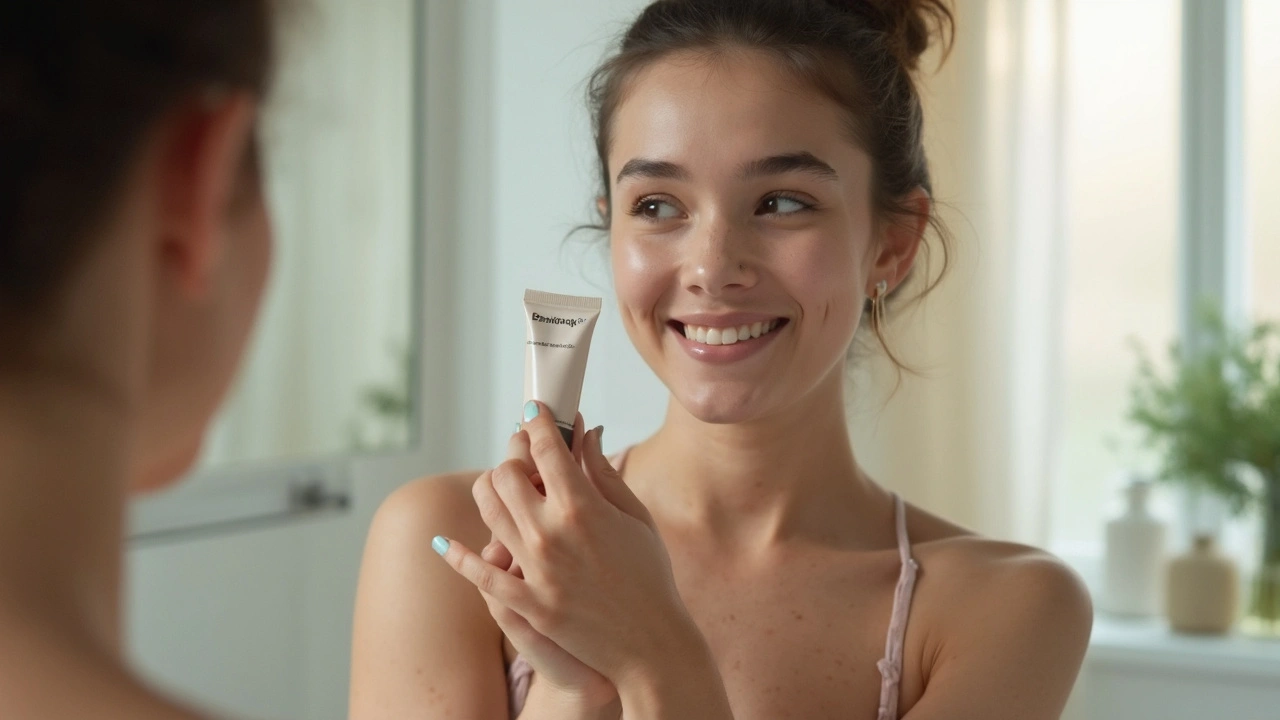Benoquin Cream (Monobenzone): What It Does and Who Uses It
Benoquin contains monobenzone, a topical medicine that lightens skin by removing pigment. It’s mainly used for stable, widespread vitiligo when matching remaining pigment is the chosen goal. This is not a regular bleaching cream — its effects can be long-lasting or permanent, so you want to be careful and well-informed before trying it.
If you’re thinking about Benoquin, talk with a dermatologist first. They’ll confirm whether depigmentation is the right option and explain realistic expectations. Many people try less-permanent treatments first, like topical steroids, calcineurin inhibitors, or phototherapy.
How to Use Benoquin Safely
Follow your doctor’s directions exactly. Typical advice includes doing a small patch test first to check for irritation or allergy. Apply only to the areas the doctor marked. Avoid spreading the cream onto normal skin — accidental contact can cause unwanted lightening.
Wear sunscreen and limit sun exposure on treated and surrounding skin. Depigmented skin burns easily. Use a broad-spectrum sunscreen with high SPF and protective clothing. If you get redness, itching, or swelling, stop use and contact your provider.
Don’t share Benoquin with others. Skin response varies and misuse can cause permanent changes you won’t want to reverse without a doctor’s input.
Side Effects, Precautions, and Buying Tips
Common side effects include irritation, redness, itching, or increased sensitivity. Rare but serious effects may include an allergic reaction. If you’re pregnant, breastfeeding, or planning pregnancy, mention this to your doctor — safety in pregnancy isn’t clearly established.
Benoquin is usually prescribed and monitored by a dermatologist. Buying from unverified online sellers carries risks: counterfeit products, wrong concentrations, or contaminated creams. If you shop online, use licensed pharmacies, check for pharmacist contact details, and read reviews carefully. Never buy from sites that avoid prescriptions or offer suspiciously low prices.
Store Benoquin at room temperature, away from heat and direct light. Keep it out of reach of children. If you’re unsure about storage or expiration, ask your pharmacist.
Alternatives to permanent depigmentation include topical treatments, light therapy, and cosmetic camouflage (makeup or concealment products). A dermatologist can walk you through pros and cons for your skin type and lifestyle.
Final practical tip: get clear before-and-after expectations in writing from your clinician. That helps you decide if the trade-offs — especially the lasting change to your skin’s pigment — are worth it for you.

